So, you’re in search of the best social media marketing agency for your business? With numerous options available, finding the right one can be overwhelming. What should you look for, and what questions should you ask to ensure you make the best choice? Here’s a guide to help you navigate the selection process, with a special focus on why Aston Digital stands out as a top choice.
Below we examine 7 key questions you should ask and the detail you should look out for behind each
Index
Question 1 – What commitment or guarantee do you offer?
Question 2 – What tools and applications do you use?
Question 3 – What is your strategic development process?
Question 4 – Have you worked in my industry or associated industries?
Question 5 – What’s your approach to learning about my business?
Question 6 – Who are your team and where are they located?
Question 7 – How much do you charge and what do you charge for?
Conclusion – How to choose the best social media marketing agency for you.
So read on to find out what you should be asking when searching for the best social media marketing agency for you!
1. What commitment or guarantee do you offer?
The best social media marketing agency’s are so confident in their work that they’ll offer a guarantee. Such guarantees often result in an exit clause for you as a client to ensure that you’re free to leave if targets aren’t met.
Failing the existence of a guarantee, often agency’s will make commitments that align their service offering to your goals. Whilst commitments are good, they don’t offer you the flexibility in your contract that you may desire.
Commitments can often come in the following forms:
- generating a specific number of leads
- selling a number of products from an eCommerce website
- reaching a certain number and type of specific consumer
On the other hand, guarantees are a tad more concrete and meaningful for you as a customer.
Often guarantees will include things like:
- meeting targets for reach and impressions (for example, achieving 200,000 impressions per month)
- hitting a specific follower number (for example, reaching 7,000 likes)
- driving a total number of clicks to a website (for example, 200 clicks per month)
If you review the above lists you’ll notice a specific difference between the details in the commitments vs the ones in the guarantees. It’s a very important differentiation.
Making the type of commitments above is very easy to say, but next to impossible to control. Perhaps the numbers can be achieved but it’s not up to the control of the agency – it’s most likely an accident. The agency does not have control over whether your product offering is suitable for the market and interesting enough to make people inquire or buy it. Similarly, the agency doesn’t have control over the type of users a social media platform has.
By contrast, the best social media marketing agency’s DO have control over the number of reach and impressions they achieve, they can increase follower numbers and they can drive clicks to a website, all these mechanics are part of the platforms themselves. Therefore, they can guarantee those metrics.
To that end, it’s vitally important to pay attention to the types of commitments or guarantees that an agency offers.
Ask yourself “Do they really have the ability to control what they’re saying, or are they just making it up?“.
It’s important to not get completely wrapped up in the commitment and guarantees because sometimes they may end up hampering the experience you get from your social media marketing agency.
All the same, having something in writing will help keep your team focused on the goal!
Pro Tip: Ask your prospective agency what commitments they will make and what guarantee they offer. Don’t base your decision solely on this but take it into account!
2. What tools and applications do you use?
The best social media marketing agency’s have a full suite of toolsets at their disposal to help make the very best of your investment.
Whilst the tools and applications that are used by an agency don’t make or break your success with them, it certainly is an indication of the depth of their capabilities.
Loosely speaking there are four different types of applications that you should ask about. These are: Scheduling, Reporting, Monitoring and Campaign Mechanics.
Each of these four have very different purposes, it’s not often that one can do all four (although some are beginning to come close). It’s generally not recommended that an agency use just one system anyway as there are others that give much better bang for buck.
Some examples of the different tools and applications that you should hear about include:
Scheduling Applications – tools that allow you to schedule your posting in advance, at a specific date and time, to a specific platform.
Reporting Applications – applications that aggregate the data about your profiles to one place and display the pertinent metrics for each.
- Sprout Social
- KlipFolio
- Funnel.io
- Google Analytics
- Audiense
Monitoring Applications – tools that monitor social media more generally, for mentions of your products, brand name(s) and competitors.
Campaign Mechanic Applications – software that helps you run competitions, entries, giveaways and other campaigns on social media.
A good agency will have a combination of tools they can use and knowledge of how to use them properly. A good way to determine what’s best for you is to ask what tools they use and how they use each of them.
The depth of the response will give you an idea of exactly how well they use each platform and ultimately what size impact each platform will have on your social media profiles.
Pro Tip: Query your prospective agency on the tools they use for each of the four application times. Ask probing questions around exactly how they use each one.
3. What is your strategic development process?
When you first start off with a new social media agency, enthusiasm is high, expectations are high and ideas are flowing. It’s an exciting time, you’re waiting to see what you’ll be presented with and your creative team members are getting their teeth stuck into some exciting new content for you!
Sadly over time this can drop off. Focus dies, enthusiasm drops and the ability to generate new ideas disintegrates. Whilst this may be unfortunate it is also natural.
Natural or not, it’s still going to cause you grief as a client. So how do you solve it? Continual strategic development and evolution is how.
If your chosen agency has a strategic evolution process built into their engagement methodology, you can expect continual changes, updates and overall positive progression of your social media profiles.
Strategy development doesn’t just sit in one area. It’s not about doing it ‘up front’ and forgetting about it. Quite the contrary, the up front development can sometimes be pointless because there’s no basis, rather on-going development is more important in providing meaning strategic insights. It’s also higher quality because it’s based on real metrics, real experience and actual data!
Subsequently, there’s really two different types of strategy development. Up-Front and Routine. It’s vital that you ask your agency how they approach both of these things.
Both steps in the strategy process are different, below outlines some of the things you should be listening for in your prospective agency’s response.
Up-front: steps undertaken initially to develop a social media strategy
- Review of your current business
- Examination of any of your existing profiles
- Setting initial KPI’s as targets to hit
- Generation of new ideas and content concepts
- Research of industry standards or competitors
- Market research for consumer expectations
Routine: process that drives continual improvement to your strategy
- Review of monthly metrics
- Monthly or Quarterly strategy meetings
- Monthly new concept generation
- Content testing
- Modification of social media advertising
It’s often quite easy for a social media agency to do the first part (up-front) but seldom do agency’s build into their process the routine part. This is something that will be vital to your on-going success and you must ask about it in detail.
Working on the assumption that your prospective agency has the correct strategic evolution processes in place, you should then expect to see a range of improvements in your social media presence.
The sort of changes that happen will have a very tangible and visible effect on your social media metrics, so it becomes plainly obvious whether they’re actually doing it or not!
Examples of the sort of changes that your agency should be routinely trialing for you include:
- Content mixture and variety
- Advertising strategy and placements
- Competition and campaign trials
- Influencer strategy and trials
Sometimes, the changes that you might expect don’t happen but changes are made in other areas that you don’t see and suddenly a positive change happens. What’s most important is that there are changes, not specifically that they are the changes that you have in your mind.
Pro Tip: Listen carefully to how your agency plans to handle your strategy into the future. If nothing they say represents routine strategic evolution you should strongly consider whether they are the right fit for you.
4. Have you worked in my industry or associated industries?
Having an agency that’s worked in your specific industry can be a very big positive and in a lot of cases is considered mandatory for many clients.
The obvious positive is that the agency knows what the industry is all about, knows the language, knows the imagery and more than any thing, knows how it works!
BUT – it’s not the most important thing. In some cases, not having industry experience can in fact be quite a positive, because they don’t bring any habits, your content won’t be influenced by what’s already being done and more than anything else you might find the agency wants to work really hard on your content because they want to break into your industry!
Generally you end up with agency’s that fall into one of three buckets. Specific industry experience, associated industry experience, and no industry experience.
Each of these buckets have benefits and drawbacks, it’s important for you to decide which ‘style’ you want to go for as each are very different.
Where there is industry experience.
The agency has worked or currently works with businesses in your specific industry.
Benefits:
- They know exactly what language and images to use.
- It’s likely they know what works and what doesn’t work.
- Your products and services will already be well understood.
- It will be an easy start and choice for you to make.
Drawbacks:
- If they’re working in your industry, they’re likely already working for your competitors.
- They will already have an ingrained (read ‘old’) view of what the style of the industry should look like.
- It’s highly likely that they won’t have to work too hard for your content and strategy.
- Given they’ve done it before, it’s likely your content will look exactly the same as everything else.
- They may well bring bad habits developed with other clients, to your profiles.
Working with an agency who has existing industry experience can be a very good thing because everything will just magically happen for you, you’ll just have to keep an eye on the ‘freshness’ of your content.
Where there is associated industry experience.
The agency hasn’t work specifically in your industry but they have worked in an adjacent industry which is very similar in one way or another.
For example, you may be a real estate agent and your prospective agency may not have worked in real estate before but has worked with home builders and renovators a lot.
Benefits:
- Knowledge of the general domain of your industry
- They’re likely to know the terminology used or at least part of it
- They’re not likely to be working with your competitors
- There’s hunger and excitement about working in the new industry sector
Drawbacks:
- They won’t have specific knowledge about every finite part of your industry
- Time will be required to get the content exactly to the level you want it
- The wrong word might be used here and there, corrections will be needed
It could be argued that this is probably the best scenario because you get the benefit of relevant knowledge as well as the benefit of fresh content.
Where there is no industry experience.
Your prospective agency has no experience in your industry or anything like it.
Benefits:
- They’re a clean slate, they’ll do it exactly the way you want.
- There’s no bias towards doing thing a certain way, everything is fresh.
- Your content won’t cross over any competitors.
Drawbacks:
- They may never get it at all and the output you’ll get will be very pointless.
- You may have to put additional time in up front to get the outcome you want.
- Terminology, vernacular and imagery may be far from correct for your industry.
Having no industry experience is not catastrophic, it just means that you’ll have to work a bit harder alongside your agency to get it exactly right. This may mean that you’ve got to put a little bit more time into their work initially but the pay-offs should be bigger and much more longer term because you’ve trained them to your way of thinking without any bias.
Before you panic!
It’s not really the end of the world if your agency doesn’t have experience in your specific industry but it helps if they have experience in something surrounding your industry.
Pro Tip: Check out whether your prospective agency has experience in your industry. If they do not, ask about similar industry’s they work in and explore how they would apply the learnings to your business.
5. What’s your approach to learning about my business?
So lets say you’ve decided upon the agency that’s right for you and it’s time to get started. How on earth do they learn about your business?
It’s a super common question and one that really seldom gets answered correctly. Unless your agency has been doing the same thing the same way for years, it’s likely they haven’t got the experience to know what they should be doing.
Therefore it’s best you ask. Really it’s not overly hard to get ‘under the covers‘ of a new business you’re working with but it is quite vital to be done at all.
There are specific actions and processes that need to be in place to ensure the right level of understanding of a new business.
The sort of things an agency should be doing to learn about your business include:
- Review of existing collateral
- Documentation of a Community Management Strategy
- Development of your business dictionary & FAQ
- Emergency Contact process and methodology
- Project kick off interview session
Sure the agency you’re talking to might not have all these things in place but the best social media marketing agency’s have all of these bases covered, ensuring that your business is properly understood and nothing falls through the cracks.
Pro Tip: There is a simple question here. “How will you get to know my business?” Listen for your prospective agency’s response. It should include everything listed above.
6. Who are your team and where are they located?
Social Media Marketing is not a ‘once off’ affair. It’s a continual process, arguably the most in-depth, routine and continual form of marketing available, perhaps only rivalled by PR.
So if you’re going to be spending that much time working with an agency, it’d be pretty important to know who you’re working with, what their skills are and where they’re located.
Some agency’s will argue that location doesn’t matter and in some senses that’s true but it depends heavily on what your service expectations are. If the team you’re working with aren’t locally based, how will you ever see them? How will you ever meet them?
However, locally based teams also have their drawbacks, cost being one!
It’s not all about location however, when you’re working with an agency you’re looking for a full suite of services, a ‘complete’ service if you will. To that end, the agency themselves must have people who have different types of skills, a range to meet the demands of all of their clients.
When you’re searching for the best social media marketing agency for you, it’s pretty important to get some insight into the team. When asking about the team members, look out of the following key things.
What are the skills of the team members?
Range of Skills required:
- Copy Writing
- Graphic Design
- Customer Service (for your clients, not you)
- Art Direction
- Photography
- Videography and video editing
- Project Management
- Accounting
- Statistical analysis
- Creative Strategy
- General IT and technology skills
- Coding
Look like a diverse list? That’s because it is. The cold hard reality is, doing social media management requires all of those things, and probably more!
Who are your local team members?
Ask about the local team members of your agency, discover who they are and what they do. Meet them if possible.
Benefits of local team members:
- They’ll be able to visit you or you them
- They’re used to the cultural norms of your area
- Sourcing of photography and video is easy
- Limited language barrier issues
- They’re often tertiary educated
It’s not all about having local people, and locally based team members come at a substantially higher cost, but there is usually a significant quality benefit.
Who and where are your off-shore team members?
Foreign, off-shore team members have an obvious benefit of cost. However, the trade off is not always worthwhile, sometimes bringing a lack of quality.
Benefits of off-shore team members:
- Lower cost
- Ability to turn around work much faster
- Often very dedicated to their work
- Exposure to foreign trends and styles
Off-shore team members do indeed have their benefits. Often the best way to engage off-shore team members is via a hybrid method, with a locally based account manager and off-shore supporting team.
Who the team are and where they’re located is not the be all and end all, but it does make a significant to, if nothing else, your stress levels.
Pro Tip: Examine the team members you’ll be working with, what their skills are and where they’re located.
7. How much do you charge and what do you charge for?
The most common question “How much does it cost?”. Now, whilst price isn’t everything, a pricing structure can reveal a lot about the type of agency you’re looking at engaging with.
How much do you charge – highlights the price point of the agency. Whilst higher cost doesn’t always equal higher quality, there is a rough correlation
What do you charge for – highlights how likely it is you’ll get ‘surprises’ on your bill. The more itemised your proposal and subsequent billing is, the lower the chances of hidden costs.
Things to be aware of in pricing schedules:
- Retainers that do and don’t include certain things
- Hourly rates being quoted rather than fixed fees
- Fees contingent on advertising budgets
- Look for “per post” pricing
Questions to ask:
- What’s included in the monthly retainer?
- What are the limits on my service?
- Is photography and video work included?
- Do I have to pay for stock photography?
- Are there any software license fees?
Often out-of-scope items:
- Photography
- Videography
- Competitions and associated Terms and Conditions
- Advertising campaigns
- After hours monitoring
- Monthly Reporting
Pricing for a social media agency can be difficult to configure because of the number of variables involved. As such, the proposal or pricing schedule that you receive may be vague, in-determinant or just simply expensive.
Pro Tip: Examine your pricing schedule carefully, it’s of the question about what’s NOT written down that’s more important than what is.
How to choose the best social media marketing agency for you.
Asking all the questions above and following the steps below will help you make the right decision for your business and brand.
Question 1 – What commitment or guarantee do you offer?
Ask your prospective agency what commitments they will make and what guarantee they offer. Don’t base your decision solely on this but take it into account!
Question 2 – What tools and applications do you use?
Query your prospective agency on the tools they use for each of the four application times. Ask probing questions around exactly how they use each one.
Question 3 – What is your strategic development process?
Listen carefully to how your agency plans to handle your strategy into the future. If nothing they say represents routine strategic evolution you should strongly consider whether they are the right fit for you.
Question 4 – Have you worked in my industry or associated industries?
Find out whether your prospective agency has experience in your industry. If they do not, ask about similar industry’s they work in and explore how they would apply the learnings to your business.
Question 5 – What’s your approach to learning about my business?
There is a simple question here. “How will you get to know my business?” Listen for your prospective agency’s response.
Question 6 – Who are your team and where are they located?
Examine the team members you’ll be working with, what their skills are and where they’re locate
Question 7 – How much do you charge and what do you charge for?
Examine your pricing schedule carefully, it’s of the question about what’s NOT written down that’s more important than what is.
If you’d like us to talk you through how we’d handle your business and brand, please drop us a line!
Let’s Get Your Social Media Humming!
Complete the form below and our team will respond within 1 business day.
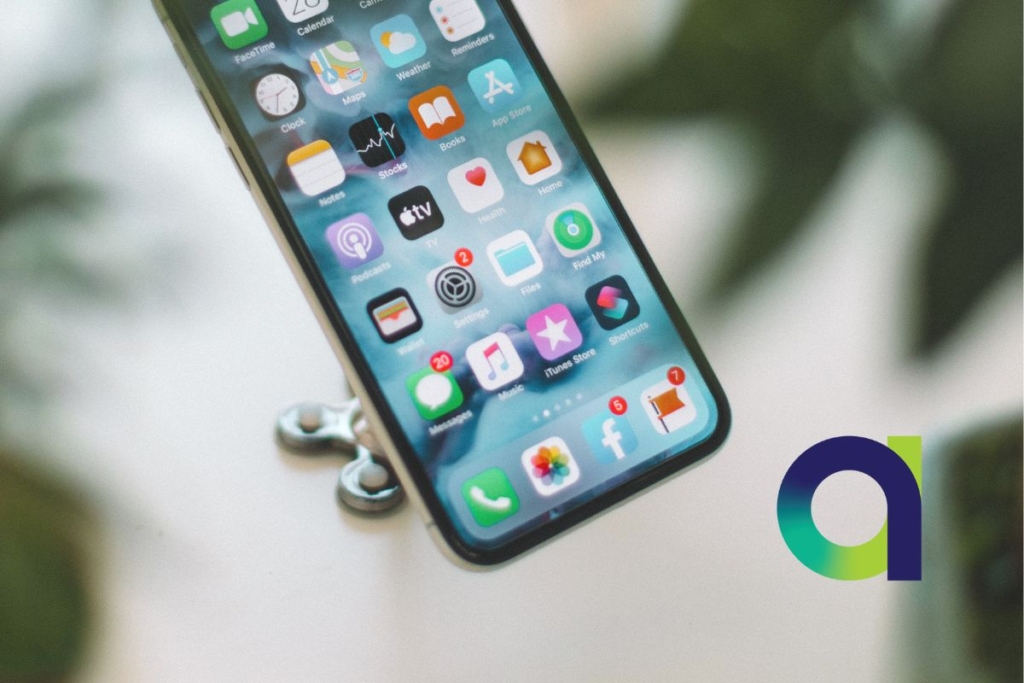
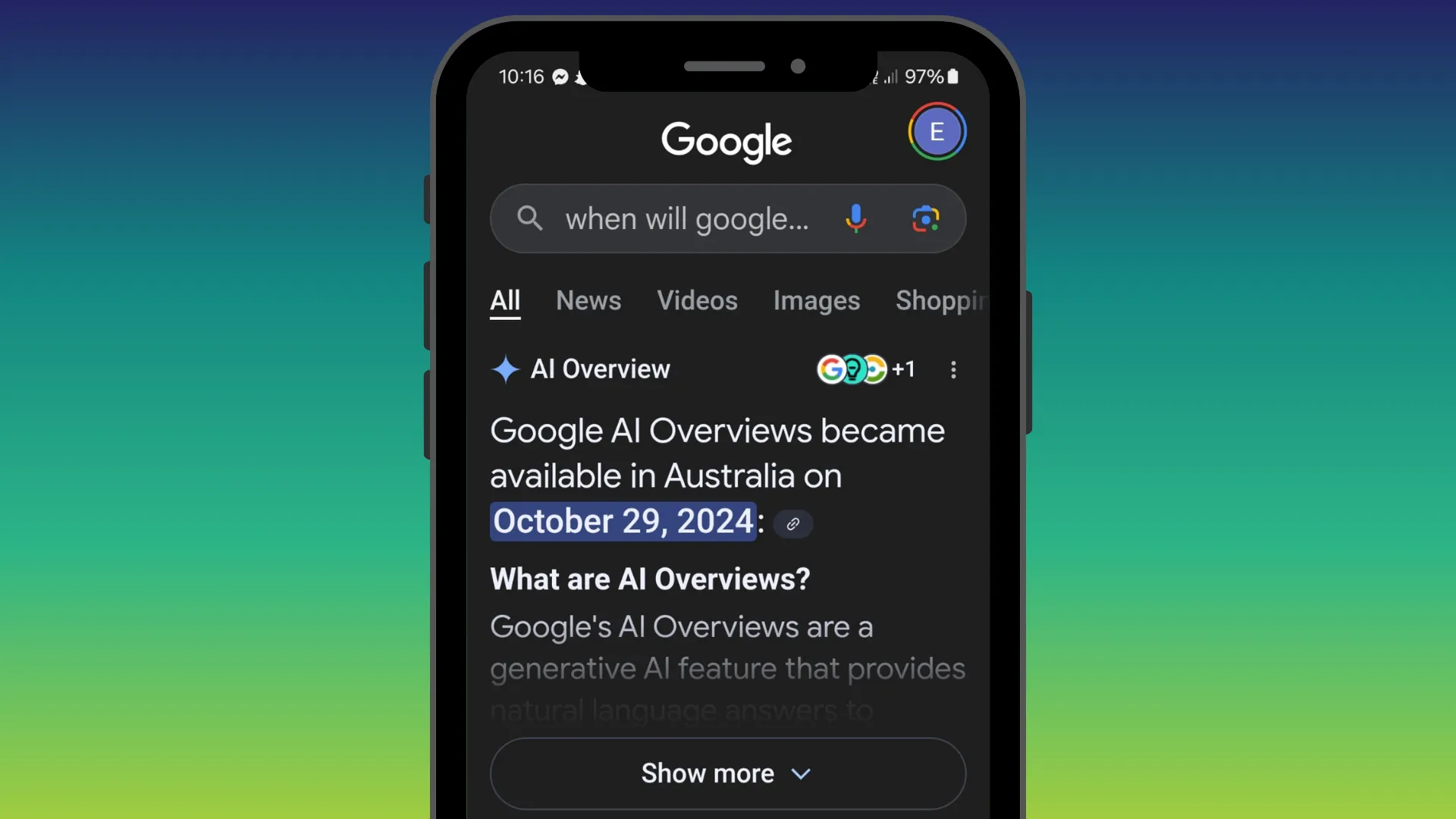
Google’s new search feature, AI Overviews, has recently launched in Australia, transforming how we interact with search engines. With AI-generated summaries now appearing directly in search engine [...]
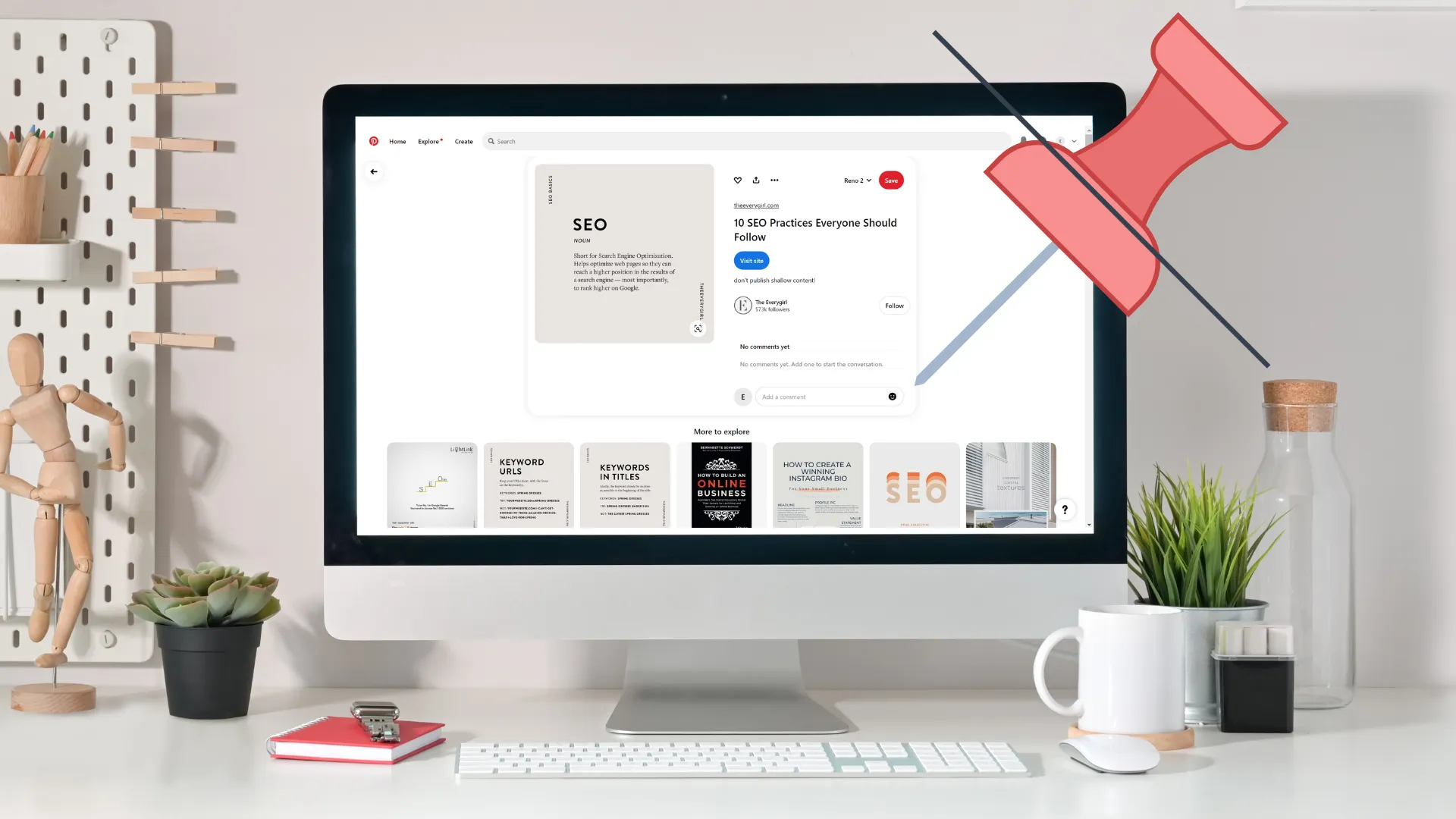
When you think about it, Pinterest is not really a social media platform but more of a search engine. While it does allow users to follow and [...]

One of our biggest takeaways from State of Social 2024 was the evolution of zero-click searches and the impact it will have on the way we do [...]

Have you noticed a drop in engagement on your brand’s Instagram posts? Likes not flowing as much as what they used to? The good news is you’re [...]

Last week, Facebook announced a major update: 'Views' will now replace impressions as the primary metric for posts and Stories. This change aligns with Instagram's recent metric [...]

It’s the second week of November, and Black Friday promotions are in full swing; emails, ads, organic posts. But, how many of these promotions are you actually paying [...]

Google’s new search feature, AI Overviews, has recently launched in Australia, transforming how we interact with search engines. With AI-generated summaries now appearing directly in search engine [...]

TikTok can be polarising. Those who use it, love it. Those who don’t often find it confusing or aren’t sure how it could fit into their social media [...]
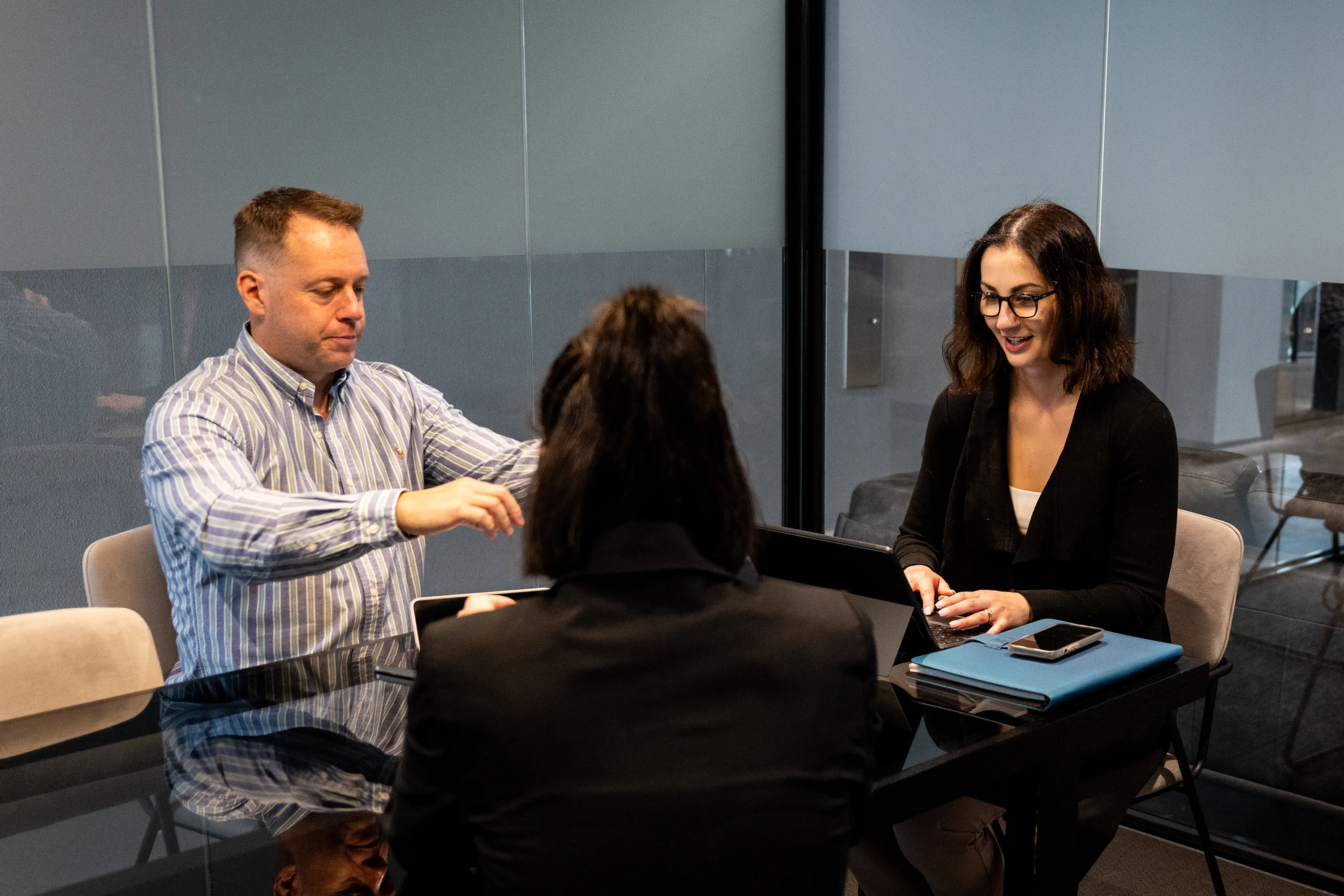
We’ve been geeking out over our latest Audience Intelligence Reports which rolled out to our clients over the last two weeks. Separate from our monthly digital marketing [...]

When you think about it, Pinterest is not really a social media platform but more of a search engine. While it does allow users to follow and [...]
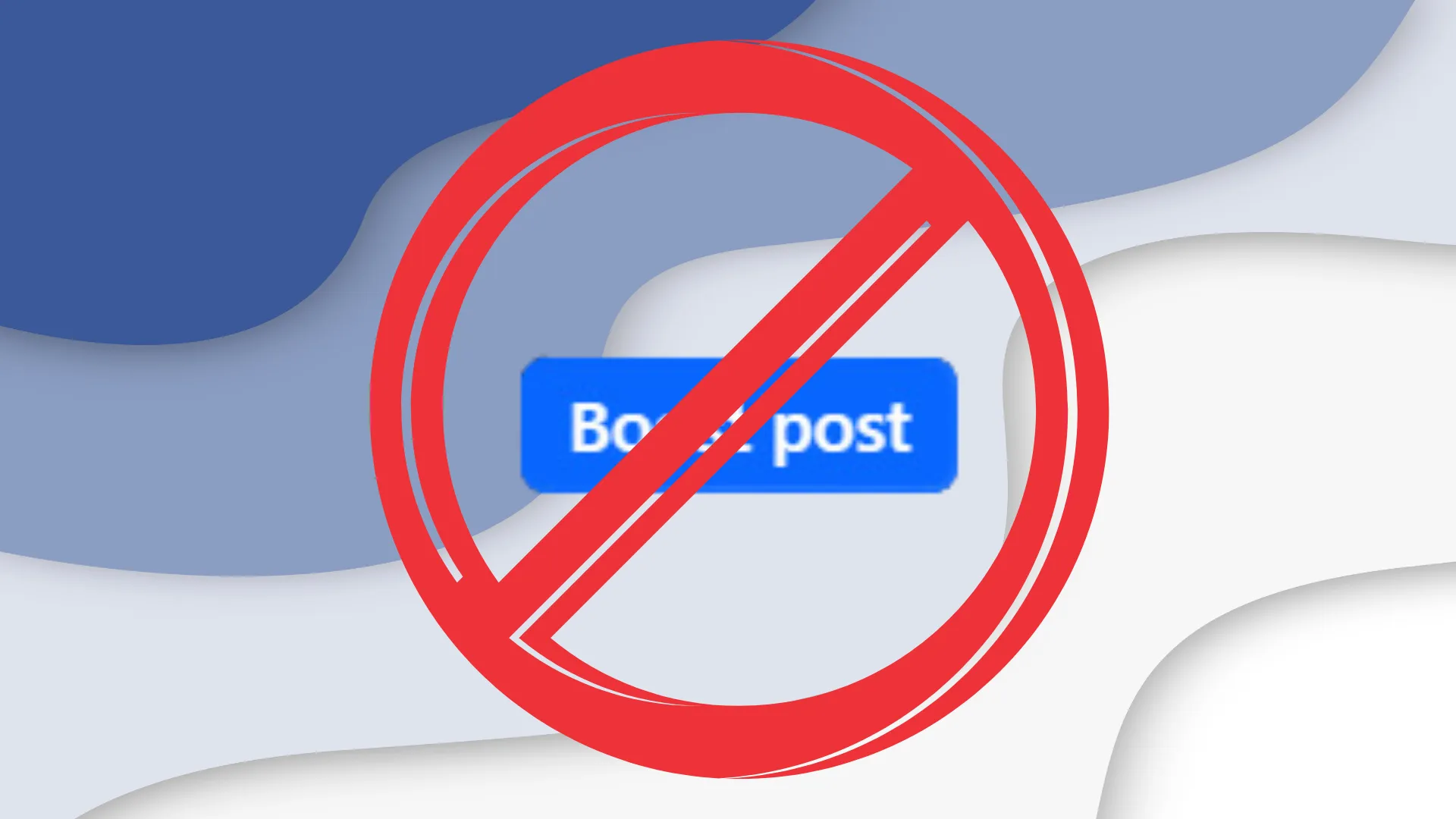
When a social media post starts gaining traction, you’ll often receive prompts from the platform encouraging you to reach a wider audience by boosting the post. A [...]
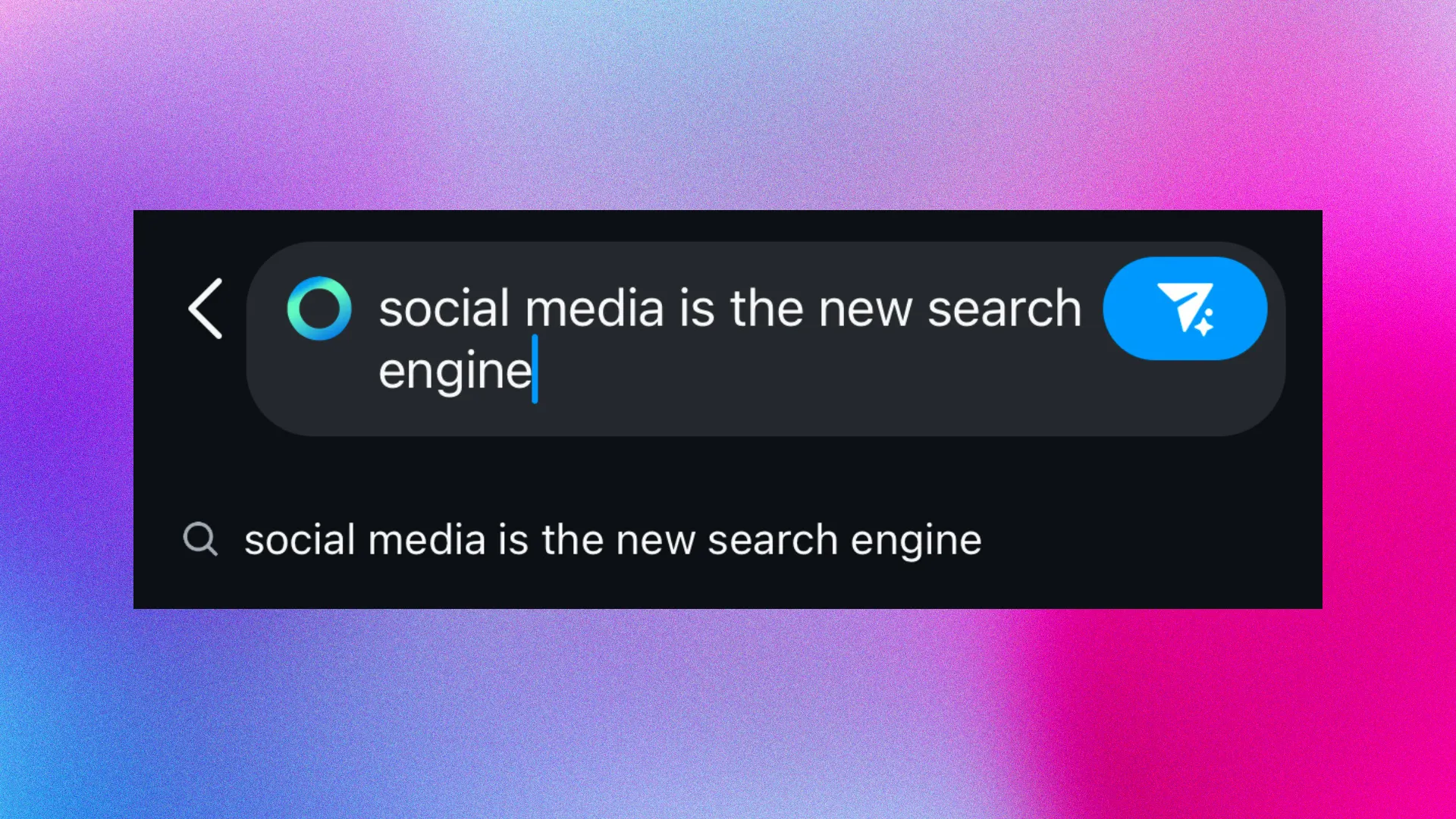
In our last article, we explored the rise of zero-click searches and its impact on how we find information online. This shift in user behaviour has also [...]

One of our biggest takeaways from State of Social 2024 was the evolution of zero-click searches and the impact it will have on the way we do [...]

Have you noticed a drop in engagement on your brand’s Instagram posts? Likes not flowing as much as what they used to? The good news is you’re [...]

